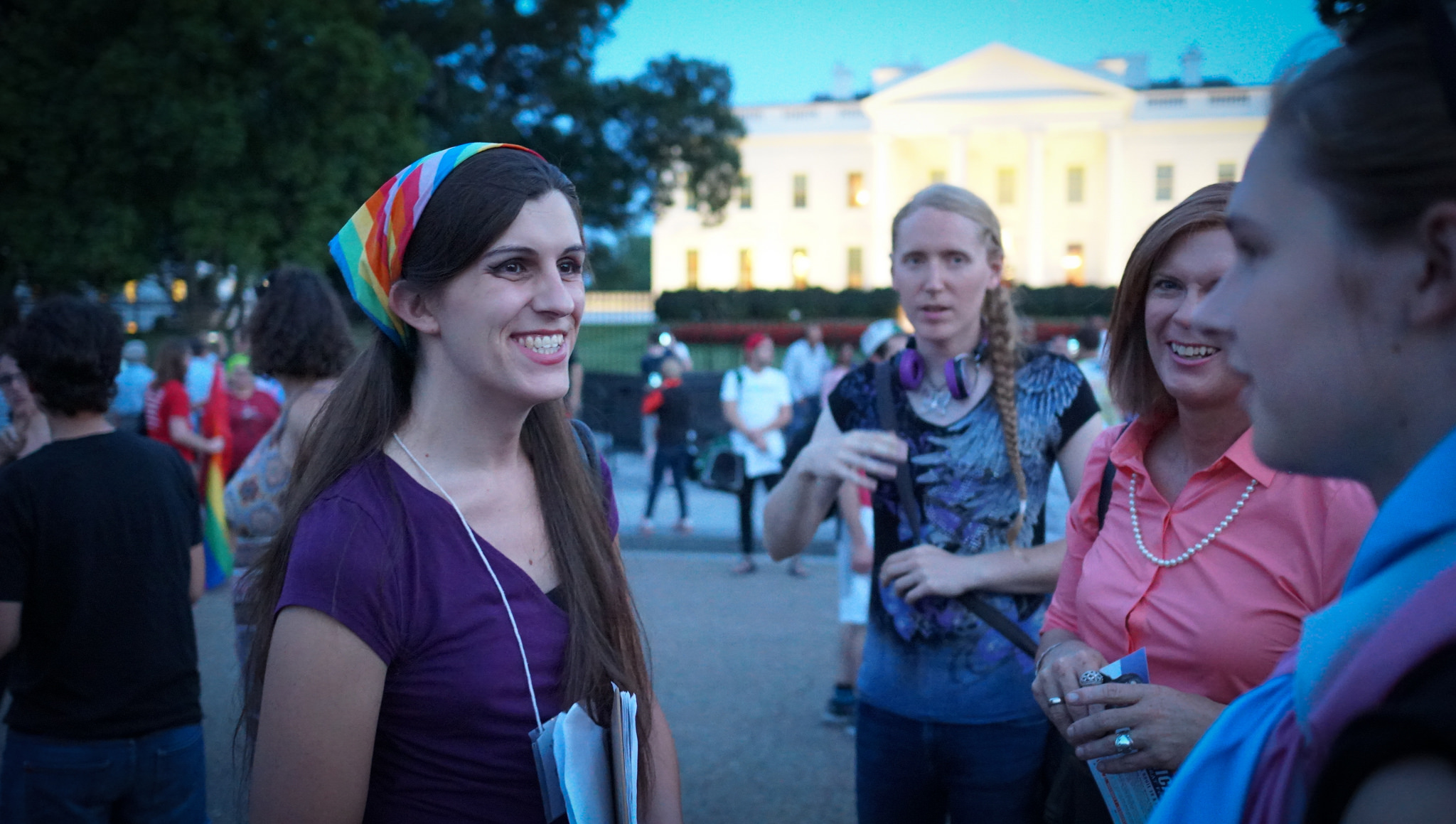Danica Roem made history earlier this month, running successfully for a seat in the Virginia House of Delegates as an openly transgender candidate. Her win was especially sweet given that she defeated Bob Marshall, a 26-year incumbent who once referred to himself as Virginia's "chief homophobe" and sponsored an anti-trans "bathroom bill" in the previous session.
Roem has pointed out that while Marshall was campaigning on transphobia, she won by running on bread-and-butter issues that matter to her constituents. And in suburban northern Virginia, one of those issues is traffic congestion.
Danica Roem's political achievement was inspiring and toppled a notorious bigot. But now that she's in office, is her traffic prescription any good?
Overall, Roem's transportation platform is pretty typical for America's car-centric suburbs. Her flagship proposal is to make more room for motor vehicles on congested Route 28 by widening it from four lanes to six and replacing signalized intersections with highway-style interchanges.
I contacted Stewart Schwartz at the Coalition for Smarter Growth to get some more context. While the Route 28 proposal is the type of road expansion project that generates more traffic and sprawl in the long run, her full transportation platform is more nuanced than that.
Roem represents a sprawling county that faces severe congestion pressure as a result of classic planning mistakes. "We are talking about prototypical American suburban landscape," said Schwartz. "One that has grown up in a rather haphazard way, without a connected street grid, separating retail from residential and office. Certainly as a result of bad land use planning, it suffers from some really terrible traffic problems without easy fixes."
In her campaign, Roem said she was motivated by the terrible commutes her mother endured daily. She told WTOP, “There isn’t a conservative or progressive, Democratic or Republican way to build a bridge."
Maybe not, but there is such a thing as smart, fiscally responsible transportation planning that will reduce traffic pressure, and Roem's road expansion ideas don't fit the bill. Her I-28 plan is a something-for-nothing proposition: She estimates it will cost $300 million (the three overpasses alone come in at $80 million), and that it can be paid for by tapping the existing toll revenue stream from I-66.
Like most American elected officials, Roem doesn't support new tolls. That will severely limit any attempt to rein in traffic in Prince William County, where tolling the busiest roads at peak hours is one of the few tools that could actually reduce congestion.
But Roem's platform includes some good ideas too, with a section of her website devoted to the need for "smarter growth."
She opposes the construction of the Bi-County Parkway, a highway connection to Loudon County that Virginia leaders had been considering. By focusing on improving the existing roadways, and not building new, Schwartz said, she's "applying a fix-it-first approach."
Roem has also given some thought to what transit can do for her district.
She calls for a short western extension of the Virginia Railway Express (VRE), which currently terminates at a park-and-ride station. Roem proposes a rail extension to the Innovation Technology Park, an office park that has had trouble finding tenants.
Roem also wants to tackle the problem of high transit construction costs. She has proposed a state-sponsored investigation, saying "labor unions are much stronger in Europe than here yet our project costs are more expensive. We need to determine why that's the case with a conclusive, data-driven study and implement what we learn from it."
So there you have it. At the moment, Roem isn't what you would call a transportation reformer. She ran promising a road widening that would probably increase sprawl and do nothing in the long run to improve the region's traffic nightmare. But she's not a knee-jerk highway booster either and seems to have an open mind about transportation policy solutions. Following her historic win, let's see how she steers the approach to transportation and land use in northern Virginia.






